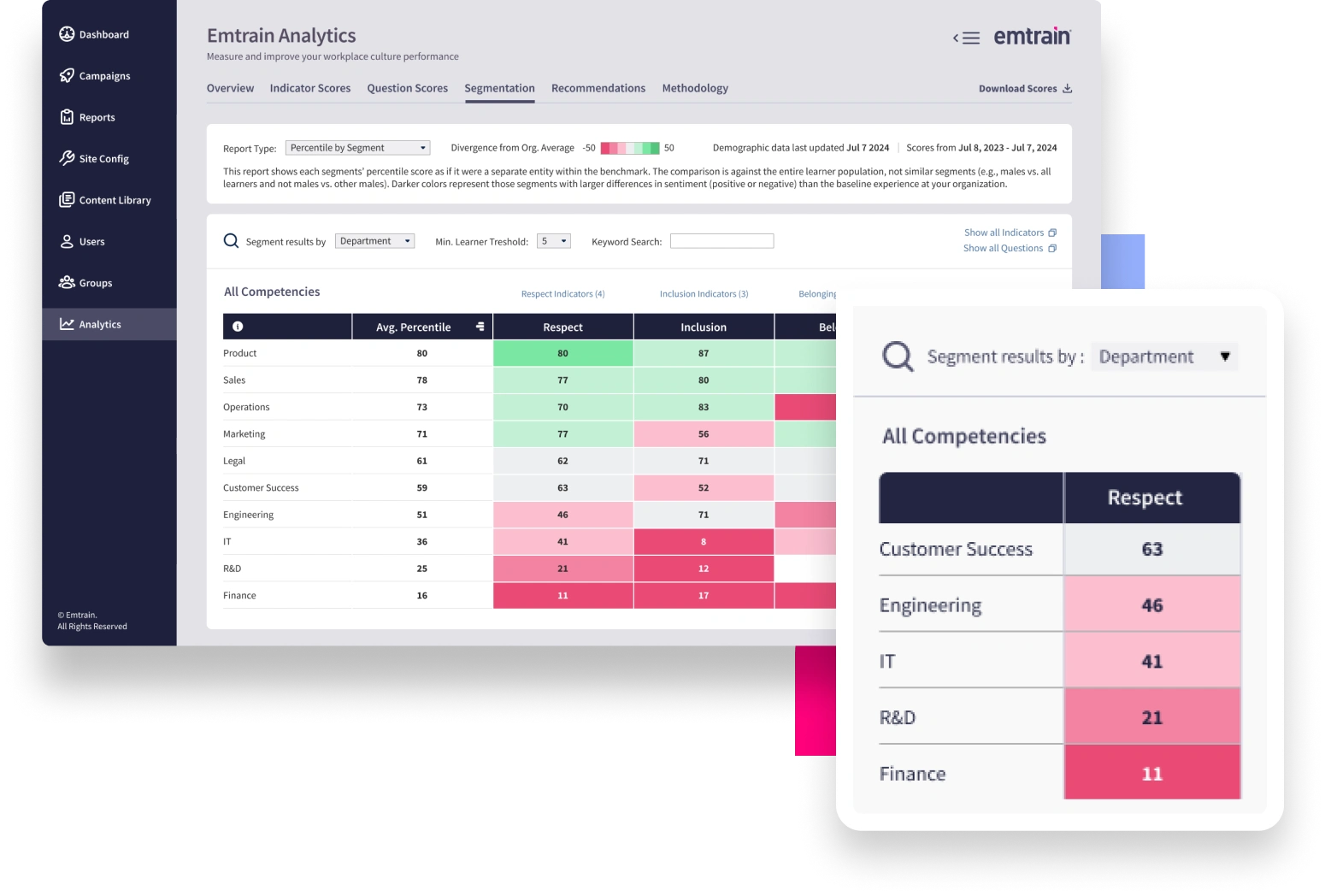Neurodiversity recognizes the natural variations in human brain function and behavior. It embraces the differences in how people think, learn, and process information, including those with conditions like autism, ADHD, dyslexia, and other neurological differences. In the workplace, supporting neurodiversity means creating an environment that values and accommodates these differences, fostering inclusion and innovation.
Emtrain’s harassment training course is engaging, interactive, and designed to spot and reduce EEO risk.

Neurodiversity refers to the diversity of human cognition and highlights the value of neurological differences in society and the workplace. It challenges traditional norms that label neurodivergent individuals as “disabled,” focusing instead on their unique strengths and perspectives. Neurodiverse employees often bring innovative problem-solving skills, heightened focus in specific areas, and creative thinking.
Organizations that embrace neurodiversity create more inclusive workplaces, improve employee morale, and unlock the potential of all team members. Research shows that neurodiverse teams can drive productivity, creativity, and innovation when provided with the right accommodations and support.
In this scenario, a manager meets with an employee who has Autism to discuss concerns about their work environment. The employee shares how loud noises, bright lights, and constant interruptions in their office make it difficult to focus and feel comfortable. Initially, the manager emphasizes teamwork and suggests that other colleagues’ actions, like dropping by the office, are meant to be friendly. However, the manager recognizes the employee’s need for a more tailored solution and proposes collaborating on strategies to improve workplace dynamics, ensuring the employee feels supported while maintaining team cohesion.